Download Transcript
Summary
Defining Medium to Long-term Improvements for Resilient Food Systems
May 14, 2020 | Time: 10:00AM Eastern Time / 16:00PM European Standard Time / 17:00 PM East Africa Time / 19:30PM Indian Standard Time
This Digital Dialogue addresses critical issues for a resilient global food system. In this session, experts look to the medium to longer-term needs for reshaping the food system, especially as espoused in numerous global calls to action and open letters in circulation. For example, recently world leaders called to design COVID-19 response measures to minimize the risks of the pandemic’s impact on food security, and take action in three key areas: maintaining global food trade, supporting the vulnerable, and investing in sustainable, resilient food systems.
An open letter to the G20 and UN now calls for addressing the inter-related challenges of hunger, malnutrition, climate change and environmental degradation, emphasizing the need for concerted, proactive and collective actions. “As the leaders of the powerful and rich nations try to limit the damage of COVID-19, we must not forget the actions needed now to ensure that there will be food and nutrition for the poorest and the weakest members of the human family,” said Ismail Serageldin, Emeritus Librarian of Alexandria and signatory to the open letter.
Audience Questions
- Has the shock of COVID-19 presented an opportunity to shift into an agroecology-based food system that is more resilient?
- How do you foresee the role of agricultural biotechnology for medium and long-term resilient food systems in terms of enhancing productivity and mitigating climate change?
- In the context of COVID-19 recovery and policy reforms, what will be the impact of the potential shift in geopolitical power and influence from the West to the East?
- Informal food markets serve as an important source of food and income across the developing world. However, there is a growing push for the closure of all “wet” informal markets across developing countries. Closure of all informal wet markets could result in shocks to food availability and income sources in some developing countries and exacerbate nutrition insecurity. What are some specific examples of positive policy actions that can be taken to improve food environments in these situations?
- How can rebuilding the resilience of the food system in Europe contribute to rebuilding the food system in low-income countries in Africa, Asia and Latin America?
- In a post-COVID scenario, do you think there will be less appetite for long-pending structural reforms in the agricultural sector?
- Without a robust eco-systems services market, how can we allow farmers to be price makers, not price takers, for their services and products?
- When trying to increase the resilience of food systems, how should we prioritize global vs local food systems? Where do you see the localization of the food system?
- How do you see the role of food manufacturing, the "middle part" in the food chain, to address the pain points discussed?
- How can the private sector play a greater role collaborating with governments and public institutions in addressing the requirements of future food systems?
- In Latin America, we are seeing a reverse migration crisis. There is not enough seed to plant the food needed to support the returning population. Yet, Latin America is largely missing from the food security dialogue. Can you comment on any specific efforts you see for this region?
- Having a broad variety of food products is very important. Often the issue in developing countries is the inability to produce these efficiently and to ensure they comply with food safety requirements, especially if they are to be exported. What strategies can we engage in to address these issues?
- What future role do you see for urban agriculture in enhancing the resilience of food systems?
- What are the 1-2 big shifts that you foresee in food systems in the coming decade?
Speakers
Louise O. Fresco - President, Wageningen University and Research; World Food Prize Council of Advisors
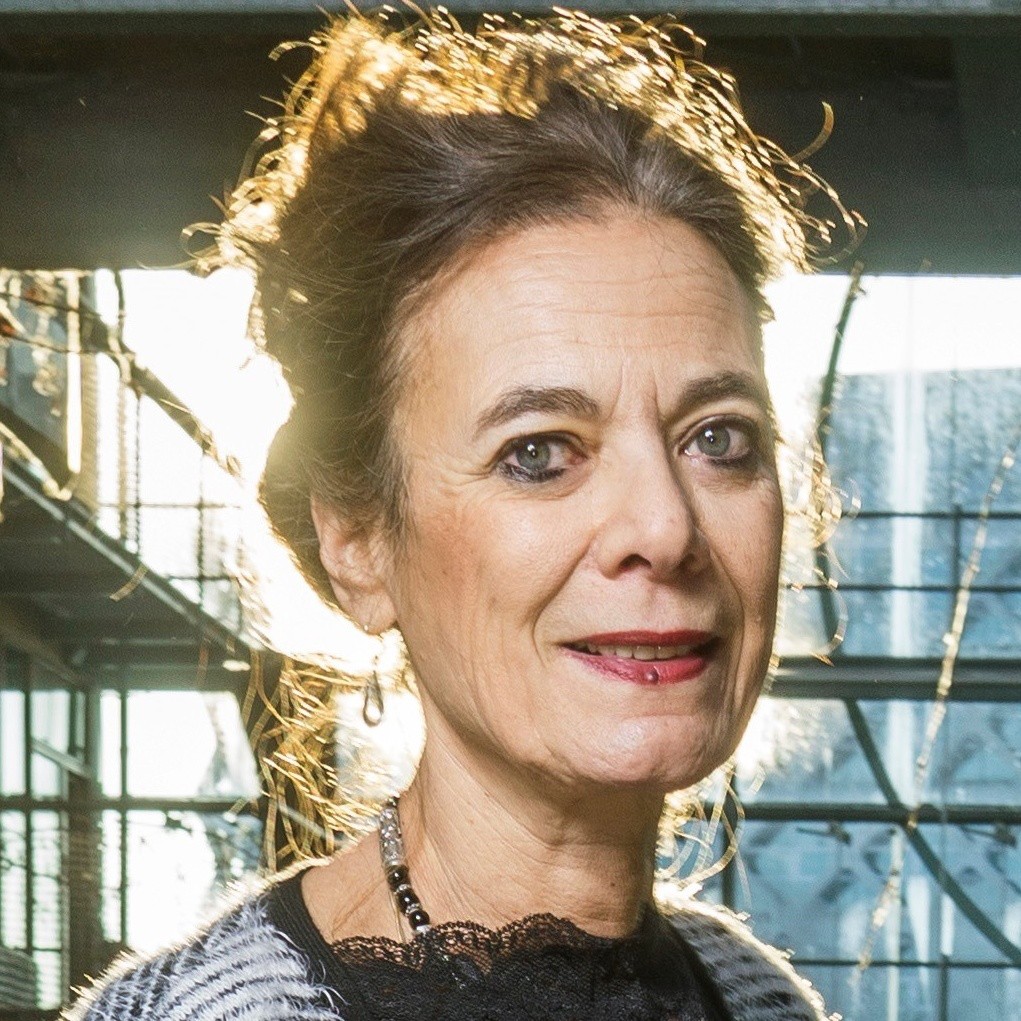 Louise O. Fresco is the President of the Executive Board of Wageningen University & Research in The Netherlands. Louise combines a long academic career as a professor at Wageningen and other institutions with an extensive involvement in policy and development, with many programs in Africa, Asia and Latin America and teaching in Sweden, Belgium and the US. Louise O. Fresco is a member of eight Scientific Academies and holds four honorary doctorates. Ten years of her career were spent at the Food and Agriculture Organisation of the UN. She is a non-Executive Director on the board of Syngenta as well as of various philanthropies while previously she served on the supervisory boards of companies like Rabobank and Unilever and at the board of the Royal Concertgebouw Orchestra. Her successful book “Hamburgers in Paradise, the stories behind the food we eat” was translated in several languages. In total she published thirteen books of fiction and non-fiction, and she also writes a bi-weekly column in NRC, the leading evening paper of The Netherlands. She presented a six part documentary on food and development for Dutch public television (to be found in translation on her website www.louiseofresco.com). You may have seen her TED talk in Palm Springs in 2009.
Louise O. Fresco is the President of the Executive Board of Wageningen University & Research in The Netherlands. Louise combines a long academic career as a professor at Wageningen and other institutions with an extensive involvement in policy and development, with many programs in Africa, Asia and Latin America and teaching in Sweden, Belgium and the US. Louise O. Fresco is a member of eight Scientific Academies and holds four honorary doctorates. Ten years of her career were spent at the Food and Agriculture Organisation of the UN. She is a non-Executive Director on the board of Syngenta as well as of various philanthropies while previously she served on the supervisory boards of companies like Rabobank and Unilever and at the board of the Royal Concertgebouw Orchestra. Her successful book “Hamburgers in Paradise, the stories behind the food we eat” was translated in several languages. In total she published thirteen books of fiction and non-fiction, and she also writes a bi-weekly column in NRC, the leading evening paper of The Netherlands. She presented a six part documentary on food and development for Dutch public television (to be found in translation on her website www.louiseofresco.com). You may have seen her TED talk in Palm Springs in 2009.
Agnes Kalibata - President, AGRA; Special Envoy of the UN Secretary-General for the 2021 Food Systems Summit
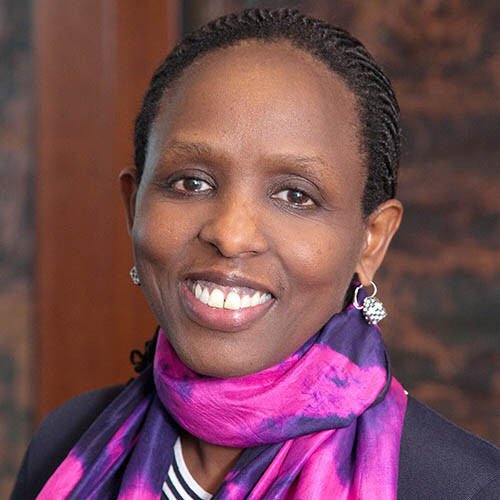 As the UN Secretary-General’s Special Envoy, Dr. Kalibata works with the United Nations system and key partners to provide leadership, guidance, and strategic direction towards the 2021 Food Systems Summit. She is responsible for outreach and cooperation with key leaders, including governments, to ensure the Summit serves as a catalytic process within the Decade of Action to improve food systems around the world to deliver on the Sustainable Development Goals (SDGs) and Paris Agreement.
As the UN Secretary-General’s Special Envoy, Dr. Kalibata works with the United Nations system and key partners to provide leadership, guidance, and strategic direction towards the 2021 Food Systems Summit. She is responsible for outreach and cooperation with key leaders, including governments, to ensure the Summit serves as a catalytic process within the Decade of Action to improve food systems around the world to deliver on the Sustainable Development Goals (SDGs) and Paris Agreement.
Since 2014, Dr. Kalibata has also served as President of the Alliance for a Green Revolution in Africa (AGRA), where she leads the organization’s efforts with public and private partners to ensure a food secure and prosperous Africa through rapid, sustainable agricultural growth, improving the productivity and livelihoods of millions of smallholder farmers in Africa.
Prior to joining AGRA in September 2014, Dr. Kalibata was Rwanda’s Minister of Agriculture and Animal Resources (MINAGRI) from 2008 to 2014, where she drove programs that moved her country from a food insecure to a food secure status and became a reference point for other countries that sought to deliver agriculture transformation..
Purvi Mehta - Head - Agriculture Development, Asia, Bill & Melinda Gates Foundation; World Food Prize Council of Advisors
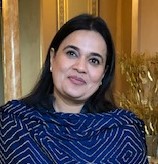 Dr. Purvi Mehta is the Head of Asia for Agriculture at the Bill and Melinda Gates Foundation.She has her formal education, up to PhD, from M.S. University, India, Tokyo University, Japan and North Carolina State University- USA. Dr. Mehta has worked with the CGIAR, as head of Asia for the International Livestock Research Institute and as head of South Asia Biosafety program (IFPRI, USAID), and brings a blend of Asia and Africa experience. She is on board of several organizations, including, International Alliance for Ecology and Health, International Centre for Rural Agriculture, Independent Director on Board of National Commodity Derivatives Exchange Ltd (NCDEX), Advisory Council- World Food Prize etc. She is honorary professor at Amity University-India and visiting Scientist at Cornell University. She has been closely associated with several agriculture and nutrition policy platforms in India, South and South East Asia and Africa and serves on several committees and advisory panels. Dr. Mehta has two books and over 50 publications to her credit.
Dr. Purvi Mehta is the Head of Asia for Agriculture at the Bill and Melinda Gates Foundation.She has her formal education, up to PhD, from M.S. University, India, Tokyo University, Japan and North Carolina State University- USA. Dr. Mehta has worked with the CGIAR, as head of Asia for the International Livestock Research Institute and as head of South Asia Biosafety program (IFPRI, USAID), and brings a blend of Asia and Africa experience. She is on board of several organizations, including, International Alliance for Ecology and Health, International Centre for Rural Agriculture, Independent Director on Board of National Commodity Derivatives Exchange Ltd (NCDEX), Advisory Council- World Food Prize etc. She is honorary professor at Amity University-India and visiting Scientist at Cornell University. She has been closely associated with several agriculture and nutrition policy platforms in India, South and South East Asia and Africa and serves on several committees and advisory panels. Dr. Mehta has two books and over 50 publications to her credit.
Per Pinstrup-Andersen - Professor Emeritus, Cornell University; 2001 World Food Prize Laureate
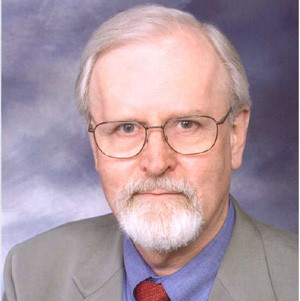 Per Pinstrup-Andersen is Professor Emeritus at Cornell University and Adjunct Professor at Copenhagen University. He is past Chairman of the Science Council of the CGIAR, Past President of the American Agricultural Economics Association (AAEA) and past Chair of the UN High Level Panel of Experts on Food Security (HLPE). He has a B.S. from Copenhagen University, a M.S. and Ph.D. from Oklahoma State University and honorary doctoral degrees from universities in the United States, the United Kingdom, Netherlands, Switzerland, and India. He is a fellow of the American Association for the Advancement of Science (AAAS) and the American Agricultural Economics Association and an honorary alumnus at Copenhagen University. He has been a professor at Cornell, Copenhagen and Wageningen universities and Director General of IFPRI. He is the 2001 World Food Prize Laureate. His authorship includes books, articles and reports about food and nutrition policy.
Per Pinstrup-Andersen is Professor Emeritus at Cornell University and Adjunct Professor at Copenhagen University. He is past Chairman of the Science Council of the CGIAR, Past President of the American Agricultural Economics Association (AAEA) and past Chair of the UN High Level Panel of Experts on Food Security (HLPE). He has a B.S. from Copenhagen University, a M.S. and Ph.D. from Oklahoma State University and honorary doctoral degrees from universities in the United States, the United Kingdom, Netherlands, Switzerland, and India. He is a fellow of the American Association for the Advancement of Science (AAAS) and the American Agricultural Economics Association and an honorary alumnus at Copenhagen University. He has been a professor at Cornell, Copenhagen and Wageningen universities and Director General of IFPRI. He is the 2001 World Food Prize Laureate. His authorship includes books, articles and reports about food and nutrition policy.
Ismail Serageldin - Emeritus Librarian of Alexandria; World Food Prize Council of Advisors
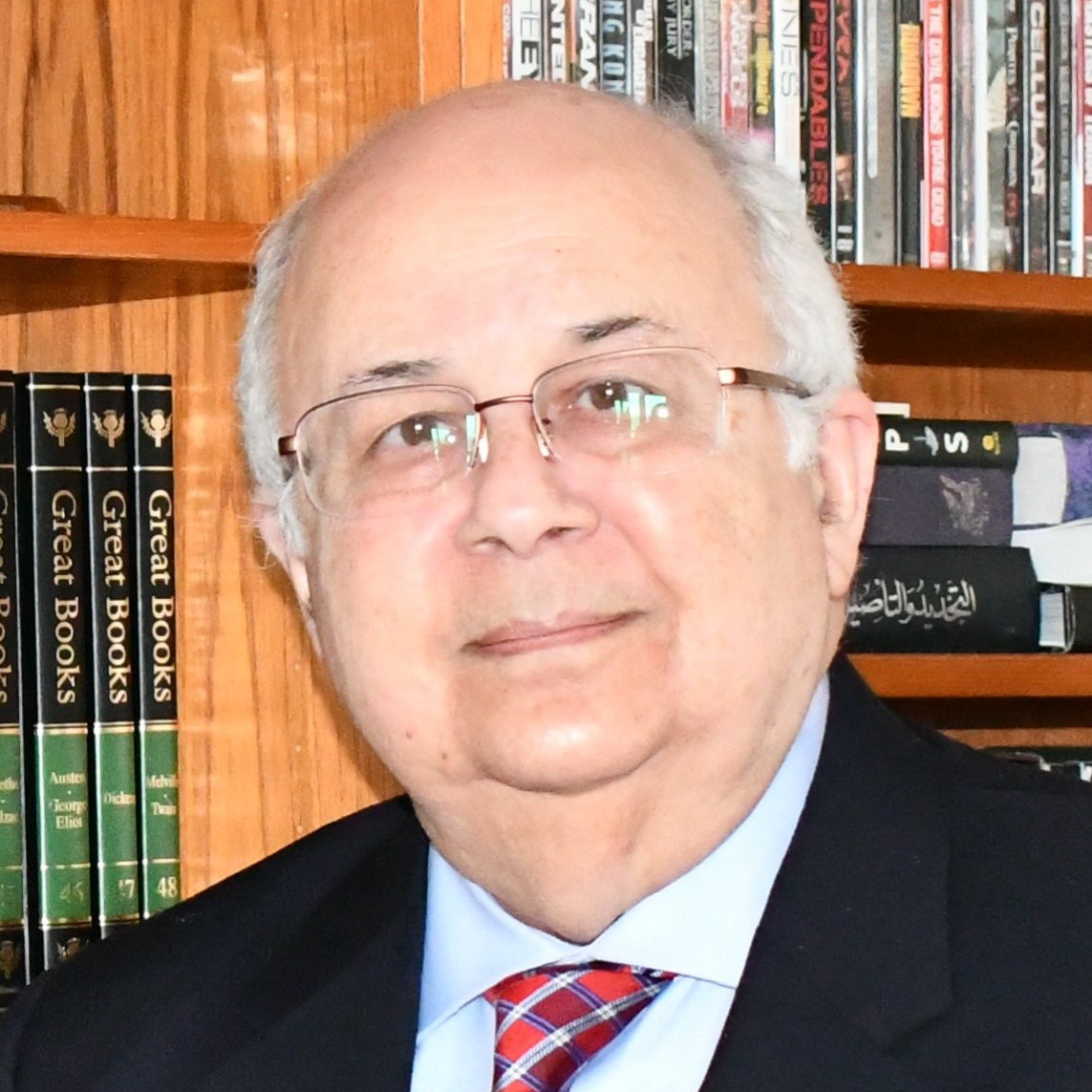 Ismail Serageldin is the Emeritus Librarian of Alexandria, and was the Founding Director of the Bibliotheca Alexandrina, the New Library of Alexandria (2001-2017) in Egypt. Before that he was the Vice-President for Sustainable Development and Special Programs at the World Bank (1993-2000), and Chairman of the CGIAR, CGAP, and GWP. He graduated from Cairo University and holds a PhD from Harvard University. He has lectured widely, published more than 100 books and 500 articles, and has received many honors and awards and 40 honorary doctorates from all over the world. He currently serves on many advisory boards and committees for academic, research, scientific and international institutions and civil society efforts.
Ismail Serageldin is the Emeritus Librarian of Alexandria, and was the Founding Director of the Bibliotheca Alexandrina, the New Library of Alexandria (2001-2017) in Egypt. Before that he was the Vice-President for Sustainable Development and Special Programs at the World Bank (1993-2000), and Chairman of the CGIAR, CGAP, and GWP. He graduated from Cairo University and holds a PhD from Harvard University. He has lectured widely, published more than 100 books and 500 articles, and has received many honors and awards and 40 honorary doctorates from all over the world. He currently serves on many advisory boards and committees for academic, research, scientific and international institutions and civil society efforts.
Moderator: Barbara Stinson - President, World Food Prize Foundation


